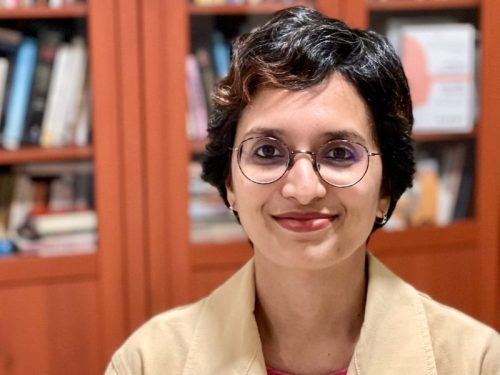Appreciating the world through an ethnographic lens
Ranjana Raghunathan, assistant professor, School of Liberal Arts and Design Studies, Vidyashilp University
We live in a rapidly changing world where the youth need to grapple with newer challenges and chaos at a much faster pace. The social, economic, and ecological complexities wrought by rapid development, rising fundamentalisms, and environmental damage are unprecedented. There is a thrust in educational policy and institutions to prepare students to be ‘future-ready’. But what does it mean? How can one be prepared for the intensifying uncertainties of our world? What approaches in our innovation practices can provide solutions to the challenges of sustainability?
Some of the salient features of the recent National Education Policy (NEP) 2020, which can respond to these questions, are the emphasis in policy on holistic education, multidisciplinarity, ethics, and human values. A problem-solving approach has been customarily adopted by policy-makers, designers, or social innovators to respond to the complexities of our ever-changing world. Many of our solutions for social change are yet to be successful in grappling with our social realities. We are easily swayed by statistics and numbers, but I think a much greater emphasis to understand stories is essential – stories of people, communities, cultures, and the numerous histories of our contemporary moment.
Ethnography as a practice of education
Ethnography – a descriptive and immersive study of human societies – is a powerful way to engage and understand the nuances of social and cultural life. It originated in the practices of anthropologists who immersed themselves in the culture and everyday life of the people who were their subject of study. It is not merely a qualitative method of research, but a rigorous inquiry, “including long-term and open-ended commitment, generous attentiveness, relational depth and sensitivity to context”, as suggested by anthropologist, Tim Ingold.
In other words, to practice ethnography is also a practice of education. Ethnography is a laboratory for exploring the human condition and opening new possibilities for thinking about human experiences. As a practice, it is one of leading ‘students’ out to the world, rather than imparting knowledge to their minds. It is a mode of learning based on participating, observing, and attending to the world; learning about the experience through experience. Instilling the youth with the skills necessary to attend to what others are saying and doing, and to follow along entails enormous risks. The risk of not knowing, exploring an unformed world, and being in a state of “continual emergence” (Tim Ingold) can be deeply disconcerting. Yet, this is the very skill and practice that the youth need, to deal with the uncertainties of our ever-changing world.
Ethnography Lab at Vidyashilp University
Vidyashilp University (VU) has a multidisciplinary approach to education with a focus on preparing students for life. In addition to domain depth, students are also given opportunities to develop leadership, self-awareness, confidence, and empathy, through a broad core curriculum and community engagement. In addition to critical reading and analysis skills that are often the backbone of higher education, we believe that empathetic and informed engagement is central to any learning experience. This pedagogical stance and VU’s vision found resonance, which naturally culminated in enabling me to set up an Ethnography Lab at the University.
The Ethnography Lab is envisioned as an intellectual community, but also a bridge between academia and the wider social context. It comprises field-based research projects, developing courses on ethnography for VU students and independent researchers, and enabling social conversations through events. It is also a platform to collaborate on ethnographic research with stakeholders inside and outside the University, and a resource centre for a wide community of researchers and students. We believe that having an ethnographic lens is crucial for attending to and responding to the complexities of our world, one that is highly sought after today by policy centres, think tanks, social welfare organisations, and the industry at large.

















Add comment